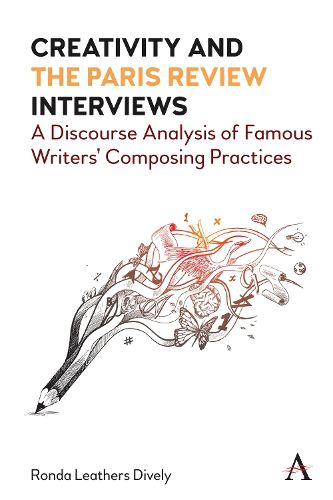Readings Newsletter
Become a Readings Member to make your shopping experience even easier.
Sign in or sign up for free!
You’re not far away from qualifying for FREE standard shipping within Australia
You’ve qualified for FREE standard shipping within Australia
The cart is loading…






Creativity and The Paris Review Interviews: A Discourse Analysis of Famous Writers’ Composing Practices centers around a thematic discourse analysis of a 2000-page corpus of Paris Review interviews, focusing on the creative processes of some of the world’s most famous fiction-writers and poets. The discourse analysis traces elements of the paradigmatic creative-process model-first insight, preparation, incubation, insight, verification-through the focal artists’ descriptions of their composing practices as embedded in the interview transcripts. That analysis also reveals multiple and significantemergent themes germane to fiction and poetry writing. The ultimate goal of this analysis is to identify patterns relevant to the aforementioned creative-process elements and themes that are suggestive of specific strategies writers can employ to facilitate their own composing acts-whether fictional, poetic, or expository. Such findings will also benefit teachers seeking to facilitate student success in the composition classroom. Such applications to expository writing are bolstered by a thorough treatment of scholarship on intersections between creativity theory and composition theory.
$9.00 standard shipping within Australia
FREE standard shipping within Australia for orders over $100.00
Express & International shipping calculated at checkout
Creativity and The Paris Review Interviews: A Discourse Analysis of Famous Writers’ Composing Practices centers around a thematic discourse analysis of a 2000-page corpus of Paris Review interviews, focusing on the creative processes of some of the world’s most famous fiction-writers and poets. The discourse analysis traces elements of the paradigmatic creative-process model-first insight, preparation, incubation, insight, verification-through the focal artists’ descriptions of their composing practices as embedded in the interview transcripts. That analysis also reveals multiple and significantemergent themes germane to fiction and poetry writing. The ultimate goal of this analysis is to identify patterns relevant to the aforementioned creative-process elements and themes that are suggestive of specific strategies writers can employ to facilitate their own composing acts-whether fictional, poetic, or expository. Such findings will also benefit teachers seeking to facilitate student success in the composition classroom. Such applications to expository writing are bolstered by a thorough treatment of scholarship on intersections between creativity theory and composition theory.